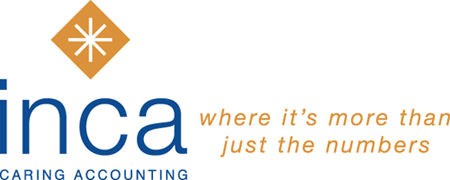Does your business undertake work related to the construction industry?
If it does, do you know if you need to register on the Construction Industry Scheme (CIS)?
There’s a lot of confusion about who should register for CIS, but understanding whether you need to or not is important because getting it wrong can lead to expensive fines.
So let’s try to clarify things.
What is CIS?
CIS is a government scheme that requires contractors to deduct tax from payments made to any subcontractors they work with, passing these on to HMRC as advance payments towards the subcontractor’s income tax liability.
Contractors must register for the scheme; subcontractors don’t have to, but if they don’t, deductions from their payments are made at a higher rate.

Who has to register for CIS?
The scheme applies to both contractors and subcontractors. The CIS registration process is slightly different depending on whether you are self-employed or operate your business as a limited company.
- Contractors
You need to register as a contractor if you pay subcontractors for construction work. Even if your business doesn’t do construction work, if you spend an average of more than £1 million a year on construction in any 3-year period, you must still register. Once you’ve registered, your business has to file monthly CIS returns for HMRC. You must verify with HMRC every subcontractor you use, and the verification process determines the level of tax you have to deduct from the service they provide to you. The labour element is subject to deductions which can be between 0% – 20% – or 30% if the subcontractor hasn’t registered onto CIS. (Contractors shouldn’t be working with unregistered subcontractors who have made no provision to declare any tax they’re going to owe).
As a registered contractor, you also have an obligation to provide subcontractors with proof of any deductions you make.
- Subcontractors
As mentioned earlier, if you’re a subcontractor doing construction work for a contractor, you don’t have to be CIS registered, but reputable contractors are unlikely to engage you, and HMRC will calculate deductions from your payments at 30% instead of the more usual 20%.
What kind of work is covered by CIS?
You can find full details on HMRC’s website at https://www.gov.uk/what-is-the-construction-industry-scheme, but CIS covers most kinds of construction work. There are some exceptions, and you don’t have to register if you only do certain jobs, including:
-
Architecture & surveying
-
Scaffolding hire (with no labour)
-
Carpet fitting
-
Making materials used in construction including plant & machinery
-
Delivering materials
-
Work on construction sites that’s clearly not construction, e.g. running a canteen or site facilities
Let Inca Take Care of CIS For You!
Dealing with the verification of subcontractors, confirming the level of deductions you need to make and fulfilling your monthly reporting obligations can be time-consuming. But Inca can take care of all your CIS responsibilities, providing you with a totally hands-free solution that leaves you free to get on with running your business – and ensures you never have to worry about incurring fines.
If you’re considering extending your property, creating a garden office / studio, or undertaking renovation work to create a home office space, you should seek professional advice from an accountant first. Taking account of your personal situation, they’ll be able to recommend the most tax-efficient option for you.
Unfiled returns incur immediate penalties which increase each month, and overlooking these even for a relatively short period can be costly – failing to file for just 3 months will rack up a cumulative penalty of £600 – with no right of appeal.
It’s not only contractors who can benefit from our knowledge of CIS. subcontractors who run limited companies can often find that under CIS, a surplus of deductions means they’re owed money by HMRC. We can work on their behalf to report CIS they’ve suffered through their payroll mechanism so that it can be set against any payroll owed through their own use of subcontractors or employees. We can help them recover excess deductions – either getting money back into their bank account or having it reallocated against other liabilities such as corporation tax or VAT.
And for self-employed subcontractors who’s deductions go into their self-assessment tax return pot, we can deal with the offsetting of any money already deducted.
Get in touch with us to understand the implications of CIS on your business, for clarification on your responsibilities and obligations, and to find out more about how Inca can take care of CIS for you. Call us now on 01235 868888 for an initial chat!
Need advice?
Find out more about the benefits of becoming an Inca client. Call us now on 0123 586 8888 for an initial chat and to arrange a meeting!




